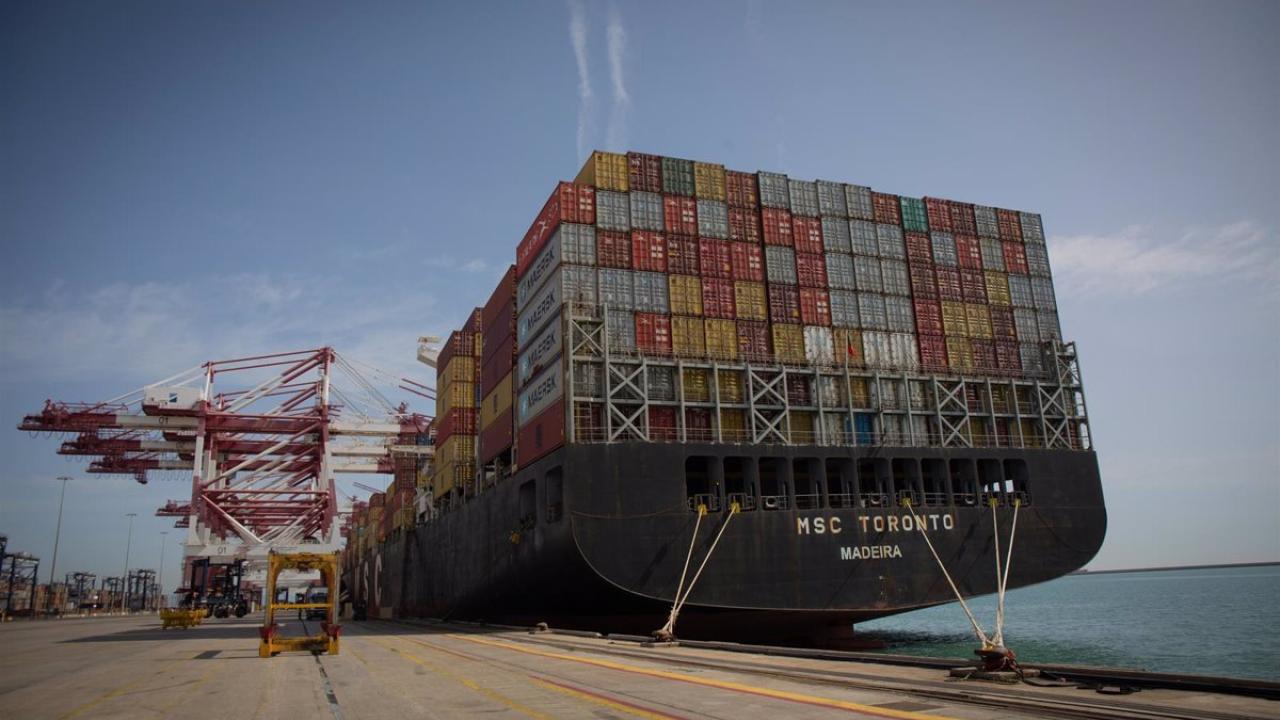
The values of the connection between Europe and Asia (Rotterdam and Shanghai) also had a strong change of more than 200% so far this year.
Maritime freight prices have had strong growth so far in 2024. The main reason is the frequent attacks by Houthi rebels in the Red Sea that complicate the route that connects with Asian ports. The permanent increases are closely followed in Uruguay.
The calm ended in November last year when Yemeni rebel groups – allies of Iran – began deploying their forces in the Bab al Mandeb Strait and the Gulf of Aden against ships heading towards Israel.
On January 2, a ship from the Danish shipping company Maersk was hit by a missile and that caused alarm in world trade. One of the busiest routes connecting with Asia was beginning to become unsafe.
The company communicated at that time that the available information confirmed that the risk to the safety of navigability was at a high level. Given this, he decided that all the company's ships that were going to transit the Red Sea and the Gulf of Aden would be diverted south in the future, around the Cape of Good Hope (South Africa).
The German Hapag-Lloyd also announced that it would avoid sailing through the Red Sea due to the danger of receiving Houthi attacks and the French CMA CGM announced an increase in container rates from Asia to Europe.
Around 12% of world trade and 30% of container traffic transit through the Red Sea annually.
Sea freight prices began to alter significantly since the beginning of the year.
Drewry's World Container Index (WCI) noted that a 40-foot container has a current price of US$4,226. In December of last year the value was US$ 1,661, which shows a variation of 154%.
The increase is practically the same in year-on-year comparison. This shows that maritime freight prices were stable in 2023 until the Hamas attacks on Israel last November and the Houthi counteroffensive in the Red Sea.
The values of the connection between Europe and Asia (Rotterdam and Shanghai) also had a strong change of more than 200% so far this year.
Uruguayan companies that sell products abroad closely follow the international freight situation. The president of the Exporters Union (UEU), Facundo Márquez, said that the increase in costs is another concern for the sector.
“It is looked at closely because it is part of the entire cost chain that exporters have,” he noted.
The union disclosed this Thursday its agenda of priorities for the development of the export sector. One of the chapters refers to the need to reduce logistics costs and improve connectivity.
More attacks and price increases in maritime freight
This month saw new Yemeni offensives in the Red Sea.
On May 18, a Panamanian-flagged oil tanker was hit by a missile launched by the Houthi rebels off the coast of Yemen. The attack caused a flood that caused a loss of propulsion and direction in the boat and a ship from the coalition established by the United States to provide security in the Red Sea immediately responded to the request for help. Assistance was not necessary, as the crew was able to regain control and the ship continued on its route.
Earlier this week, Houthi rebels claimed responsibility for three attacks on two oil tankers and a container ship in the Red Sea and Indian Ocean. The container ship was the MSC Michela, with a Portuguese flag and belonging to the Mediterranean Shipping Company (MSC).
This Thursday they assured that they have attacked 129 ships in the Red, Arabian and Mediterranean Seas and the Indian Ocean since they began their operations in November against ships heading towards Israel.
The leader of the Yemenis, Abdul Malik al-Huthi, reported that actions will be expanded against ships that take the longer route by detouring through the Cape of Good Hope to reach Asia. If they carry out the threat, they would extend the offensives beyond the Red Sea, the Strait of Bab al Mandeb and the Gulf of Aden.
The attacks and the announcement were felt in the price of maritime freight. The WCI in the month had an increase of 56%, going from US$ 2,708 to US$ 4,226 for a 40-foot container.









